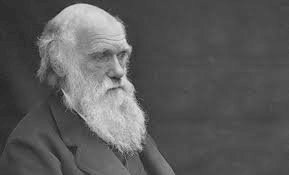Charles Darwin | The Father of Evolution
Charles Darwin was born into a wealthy and intellectually prominent family. His father, Robert Darwin, was a physician, while his grandfather, Erasmus Darwin, was a noted naturalist. Young Darwin showed an early interest in natural history, collecting insects and studying animal behavior.

Charles Darwin, a name synonymous with the theory of evolution, reshaped the world’s understanding of life’s origins. His groundbreaking work, "On the Origin of Species," introduced the concept of natural selection, revolutionizing biology and laying the foundation for modern evolutionary science. This blog explores Darwin’s life, his scientific contributions, and the enduring impact of his work.
Quick Info: Charles Darwin
| Full Name | Charles Robert Darwin |
|---|---|
| Born | February 12, 1809, Shrewsbury, England |
| Died | April 19, 1882, Downe, England |
| Field | Natural History, Geology, Biology |
| Known For | Theory of Evolution, Natural Selection |
| Education | University of Edinburgh, Christ's College, Cambridge |
| Famous Works | "On the Origin of Species," "The Descent of Man" |
| Awards | Copley Medal, Wollaston Medal |
| Key Idea | Survival of the Fittest |
Early Life and Education
Charles Darwin was born into a wealthy and intellectually prominent family. His father, Robert Darwin, was a physician, while his grandfather, Erasmus Darwin, was a noted naturalist. Young Darwin showed an early interest in natural history, collecting insects and studying animal behavior.
Darwin’s academic journey began at the University of Edinburgh, where he initially studied medicine. However, his aversion to surgery led him to switch to theology at Christ’s College, Cambridge. While at Cambridge, he developed a passion for natural history, influenced by notable mentors like botanist John Stevens Henslow.
The Voyage of the Beagle
In 1831, Darwin embarked on a five-year voyage aboard the HMS Beagle as a naturalist. This journey proved to be the turning point in his career and life.
Key Observations During the Voyage:
-
Galápagos Islands: Darwin observed variations in finches and tortoises, which hinted at species adapting to their environments.
-
South America: Fossil discoveries suggested a connection between extinct species and modern animals.
-
Coral Reefs: His study of atolls led to significant insights into geological formations.
These observations formed the basis of his later work on evolution and natural selection.
Development of the Theory of Evolution
Darwin spent over two decades analyzing his findings before publishing his ideas. His 1859 book, On the Origin of Species, outlined his theory of evolution by natural selection.
Core Principles of Darwin’s Theory:
-
Variation: Individuals within a species exhibit variations.
-
Struggle for Existence: Organisms compete for limited resources.
-
Natural Selection: Traits that enhance survival are passed on to future generations.
-
Descent with Modification: Over time, species evolve from common ancestors.
The book sparked widespread debate but gradually gained acceptance in scientific communities.
Later Life and Contributions
After the success of On the Origin of Species, Darwin continued his research on various topics, including human evolution, animal behavior, and plant biology. His 1871 book, The Descent of Man, extended his evolutionary theory to human origins, further fueling discussions.
Despite chronic illness in his later years, Darwin remained intellectually active, contributing to science until his death in 1882. He was buried in Westminster Abbey, an honor reserved for the most distinguished individuals in British history.
Legacy and Impact
Charles Darwin’s ideas revolutionized biology and influenced numerous fields, including psychology, anthropology, and ecology. His work laid the groundwork for modern genetics and the study of biodiversity.
Honors and Recognition:
-
Darwin’s name is immortalized in scientific terms such as "Darwinism" and "Darwin’s finches."
-
Numerous species, institutions, and geographical landmarks bear his name, including Darwin’s Arch in the Galápagos Islands.
-
His contributions are celebrated annually on Darwin Day (February 12).
Engaging Facts About Charles Darwin
-
Darwin initially studied theology and planned to become a clergyman before turning to science.
-
He married his first cousin, Emma Wedgwood, and they had ten children.
-
The "Darwin Awards," a humorous nod to evolution, are named in his honor.
-
He was a prolific letter writer, corresponding with over 2,000 individuals during his lifetime.
Conclusion
Charles Darwin’s theory of evolution by natural selection transformed our understanding of life on Earth. His legacy as a visionary scientist endures, inspiring countless researchers and thinkers. Through his meticulous observations and groundbreaking ideas, Darwin not only unraveled the mysteries of nature but also reshaped humanity’s place in the natural world.

 Deepak Maurya
Deepak Maurya 





























